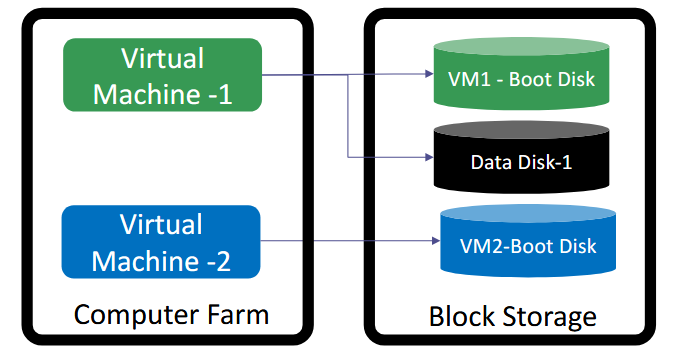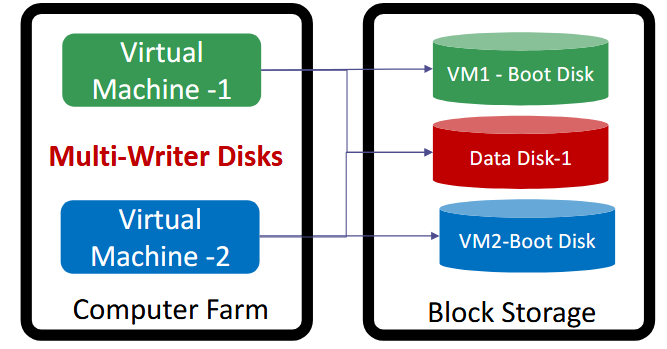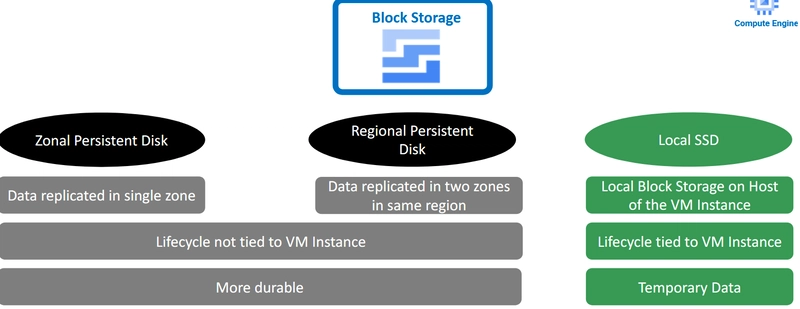Part-23: Compute Engine Storage Options in Google Cloud Platform (GCP)
Google Cloud Storage
Block Storage → Persistent Disks (Zonal & Regional), Local SSDs, Hyperdisks.
- Zonal Persistent Disk: Data replicated in a single zone, independent of VM lifecycle.
- Regional Persistent Disk: Data replicated across two zones in the same region, offering higher durability.
- Local SSD: Ultra-fast local block storage tied to the VM lifecycle, meant for temporary data.
File Storage → Filestore, which provides managed NFS file shares for applications needing shared file systems.
Object Storage → Cloud Storage, a globally available, highly durable, and scalable object store for unstructured data.
Block Storage in General
• General Use: Hard Disks attached to VMs
• At any point of time one Block Storage Device can be connected to one VM in Read-Write Mode
• We can attach Read-Only Block Storage Devices to Multiple VMs
• One VM can be associated with Multiple Block Storage Devices
Recent & Latest: Multiple VMs can connect to a Block Storage Device in Read-Write Mode and that feature is called Multi-Writer Disks
Block Storage Types in General
• Direct-attached Storage (DAS): Regular HDD, SSD
• Storage Area Network (SAN): High-Speed network that provides block level network access to Storage.
Google Compute Engine – Block Storage Options
Zonal Persistent Disk
- Data is replicated within a single zone.
- Independent of the VM lifecycle (can persist even if the VM is deleted).
- Standard option for most workloads.
Regional Persistent Disk
- Data is replicated across two zones in the same region for higher durability.
- Also independent of VM lifecycle.
- Suitable for high availability scenarios.
Local SSD
- Provides high-speed block storage physically attached to the VM host.
- Lifecycle is tied to the VM instance (data is lost when the VM is stopped or deleted).
- Best for temporary or cache-type workloads where performance is critical.
👉 In short, Persistent Disks (Zonal/Regional) focus on durability and independence from VMs, while Local SSDs prioritize speed but are tied directly to the VM lifecycle.





